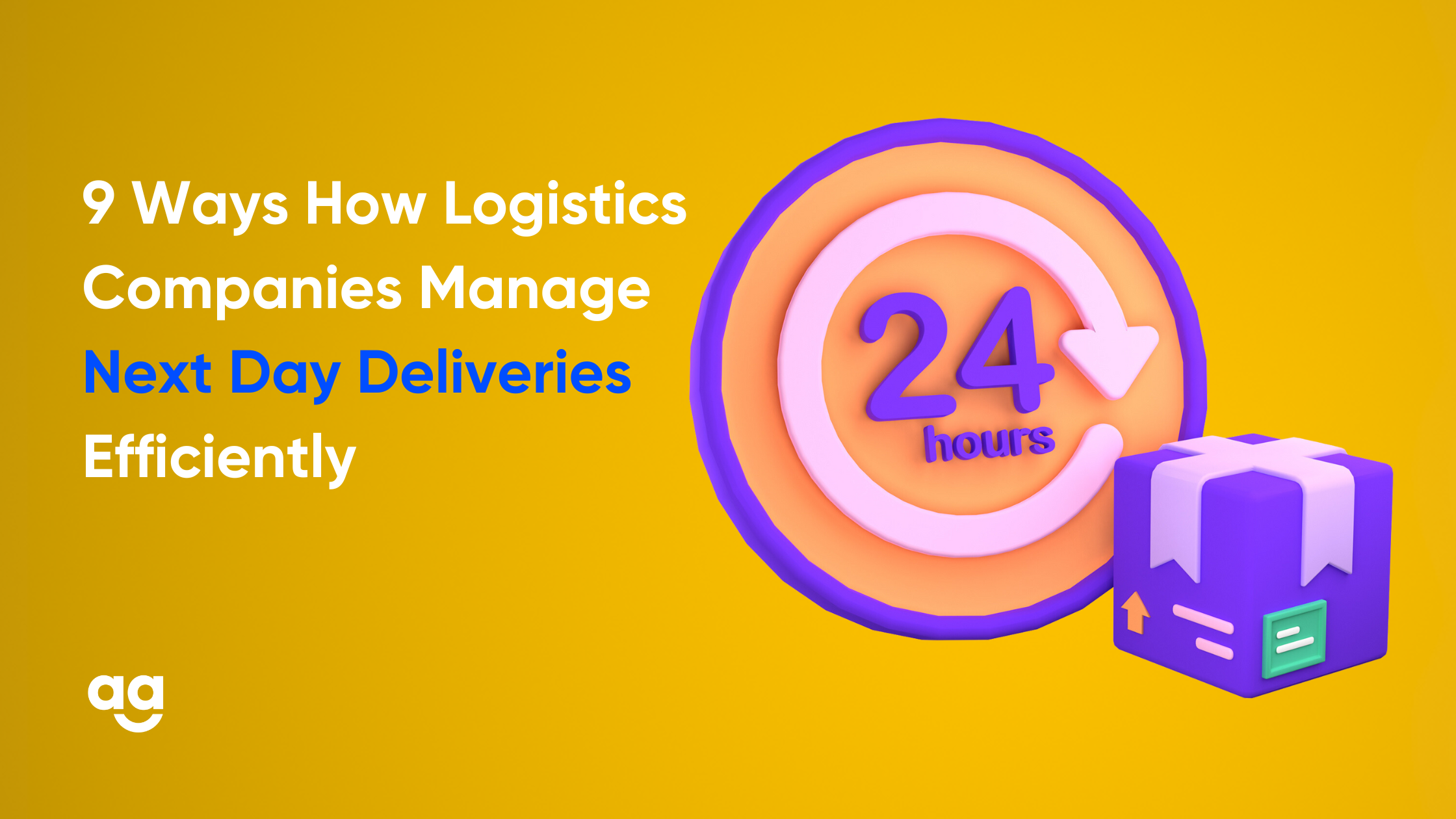Introduction
Next day delivery has established itself as the industry standard for logistical effectiveness in the fast-paced world of eCommerce and burgeoning consumer demands. To meet this criterion, processes and technologies must be carefully coordinated to guarantee that packages arrive at their destinations within 24 hours.
This blog will examine the effective management of next day delivery by logistics businesses, offering details on the procedures that take place in the background to make it all happen.
9 Ways Logistic Companies Manage Next Day Deliveries
Advanced Warehouse Management Systems (WMS)
Warehouse efficiency is one of the most vital functions. Advanced warehouse management systems are arranged by logistics organizations to improve order picking, inventory tracking, and storage. These technologies ensure that products are easily accessible for prompt delivery when an order is placed.
Real-Time Inventory Visibility
Managing next day delivery requires visibility in real time to accurately track inventory. Logistics service providers employ technology like RFID (Radio-Frequency Identification) and barcoding. By doing this, businesses can avoid stockouts and guarantee that they always have the necessary supplies on hand to quickly fill requests.
Efficient Order Processing
Effective order processing is crucial after a purchase has been made. Orders can be sorted, prioritized, and assigned to the best fulfillment facilities or modes of conveyance using automated processes. This reduces delays and increases effectiveness.
Route Optimization
Managing next day deliveries requires careful management of delivery routes. To find the most effective route for each delivery vehicle, sophisticated algorithms consider variables including traffic conditions, road closures, and delivery windows. This shortens delivery times while simultaneously using less fuel and producing fewer emissions.
Predictive Analytics
To effectively manage next day delivery, predictive analytics are essential. Logistics service providers can foresee demand spikes and modify their operations accordingly by examining previous data and market patterns. This proactive strategy offers a more seamless delivery process by preventing bottlenecks.
Advanced Fleet Management
Modern fleet management systems that provide delivery truck tracking, monitoring, and maintenance alerts in real-time are purchased by logistics service providers. By doing this, the fleet is always in excellent operating shape and is ready to react quickly to any unforeseen problems.
Last-Mile Delivery Solutions
Delivery’s final mile is frequently the most difficult and time-consuming. In order to solve this problem, logistics service providers are looking into cutting-edge ideas like crowdsourcing deliveries and electric bikes. These techniques are made to efficiently move through metropolitan areas while cutting the time and expense of last-mile delivery.
Continuous Training and Development
A well-trained workforce is essential for efficient next day deliveries. Logistics companies invest in ongoing training and development programs for their staff to improve their skills, keep up with industry trends, and adapt to changing customer expectations.
Partnerships and collaborations
To improve the entire process, logistics businesses frequently work with other supply chain participants, such as transportation suppliers. Partnerships can result in the sharing of resources, lower costs, and more effective delivery of services.
Wrapping Up
Next day delivery service might sound like a hassle but having a reliable logistics partner which follows all these required steps ensures that your products reach the end customers on time. Thus, resulting in a good brand image for the ECommerce businesses and brands and help make a profitable business





 Shipping
Shipping